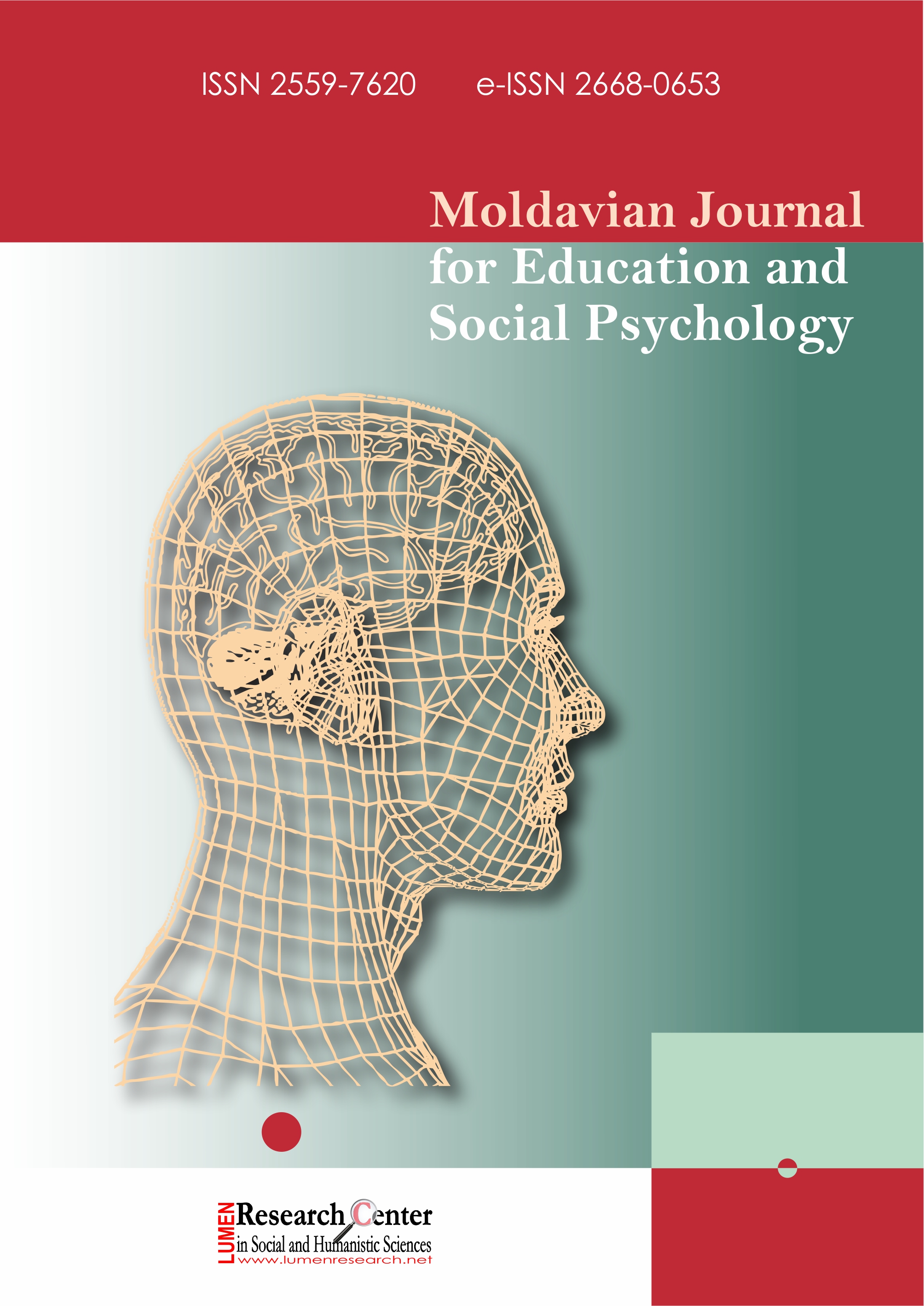Self-Efficacy and Optimism as Mediators of Perceived Stress in Adolescence
Self-Efficacy and Optimism as Mediators of Perceived Stress in Adolescence
Author(s): Maria BeleaSubject(s): Social Sciences, Social psychology and group interaction, Personality Psychology, Evaluation research
Published by: Editura Lumen, Asociatia Lumen
Keywords: adolescence; perceived stress; self-efficacy; optimism; problem questionnaire;
Summary/Abstract: The perceived stress of the adolescents in their daily lives gives valuable information regarding their attitude when encountering difficulties. Similarly, it provides insights on their level of contentment with their own lives. In this particular context, an array of resources which would allow them to cope with new situations that are inevitably caused by their development, becomes crucial. This current research analyses the extent to which attitudes of self-efficacy and optimism influence teenagers’ thoughts and coping methods with the unpredicted and stressful events that life can bring to their daily routine (Jerusalem & Mittag, 1995). In order to get an understanding in depth of the research topic, a sample of 525 Romanian students including 186 boys (35,4%) and 339 girls (64,6%) aged between 15 to 18 years old (average age = 16; SD = 1,04) were selected for the purpose of this study. The researcher’s hypothesis was based on the assumption that participants who demonstrate high levels of self-efficacy and optimism tend to evaluate problems as being less stressful while compared to those who scored lower percentages on these two attitudes. A quantitative methodology has been chosen to collect the data through the use of questionnaires including: the Problem Questionnaire (PQ), developed by Inge Seiffge-Krenke, the General Self- Efficacy Scale (GSE) by Jerusalem and Schwartzer (1992) and the Life Orientation Test-Revised developed by Carver and Scheier. The results show that self-efficacy, the optimism level and resilience have a positive impact on how tasks are dealt with. Teenagers with strong attitudes of self-efficacy perceive themselves as being more capable of overcoming difficulties. They have a more optimistic perspective of situations, and they also tend to interpret life obstacles as challenges rather than threats, therefore focusing more on opportunities. On the other side, teenagers who scored low percentages on the self-efficacy and optimism analysis, seem to worry more and feel less proficient and capable when facing various tasks or stressful situations.
Journal: Moldavian Journal for Education and Social Psychology
- Issue Year: 5/2021
- Issue No: 1
- Page Range: 01-11
- Page Count: 11
- Language: English

